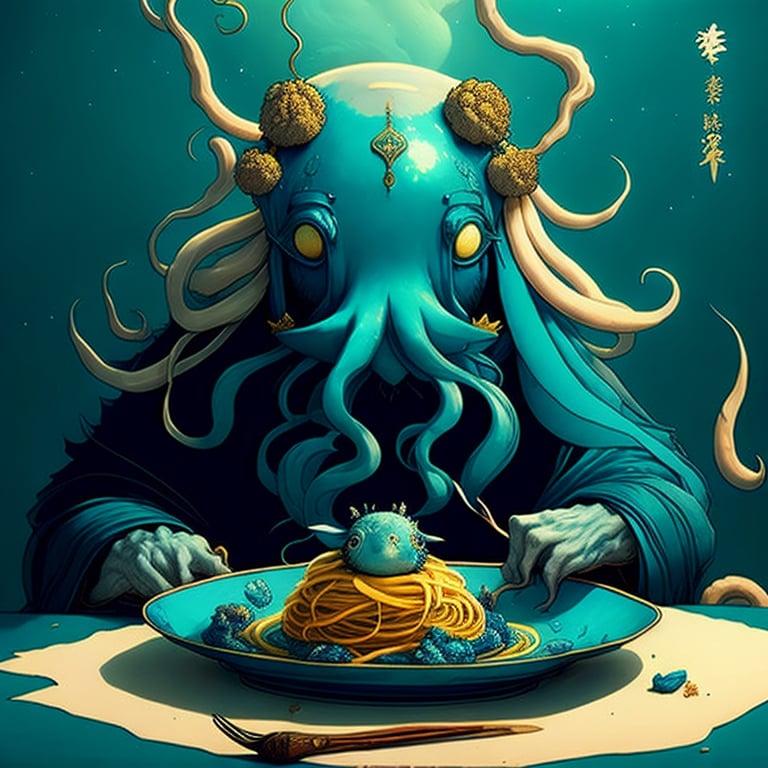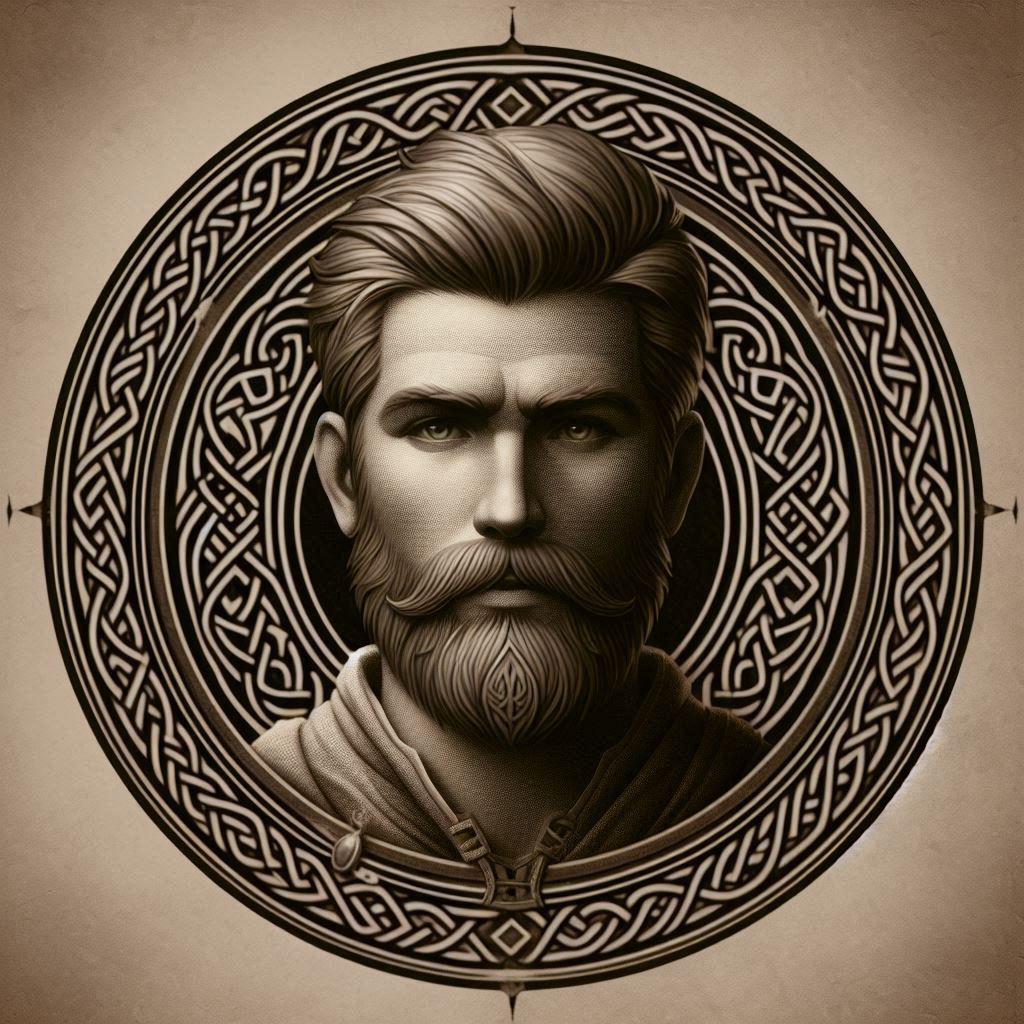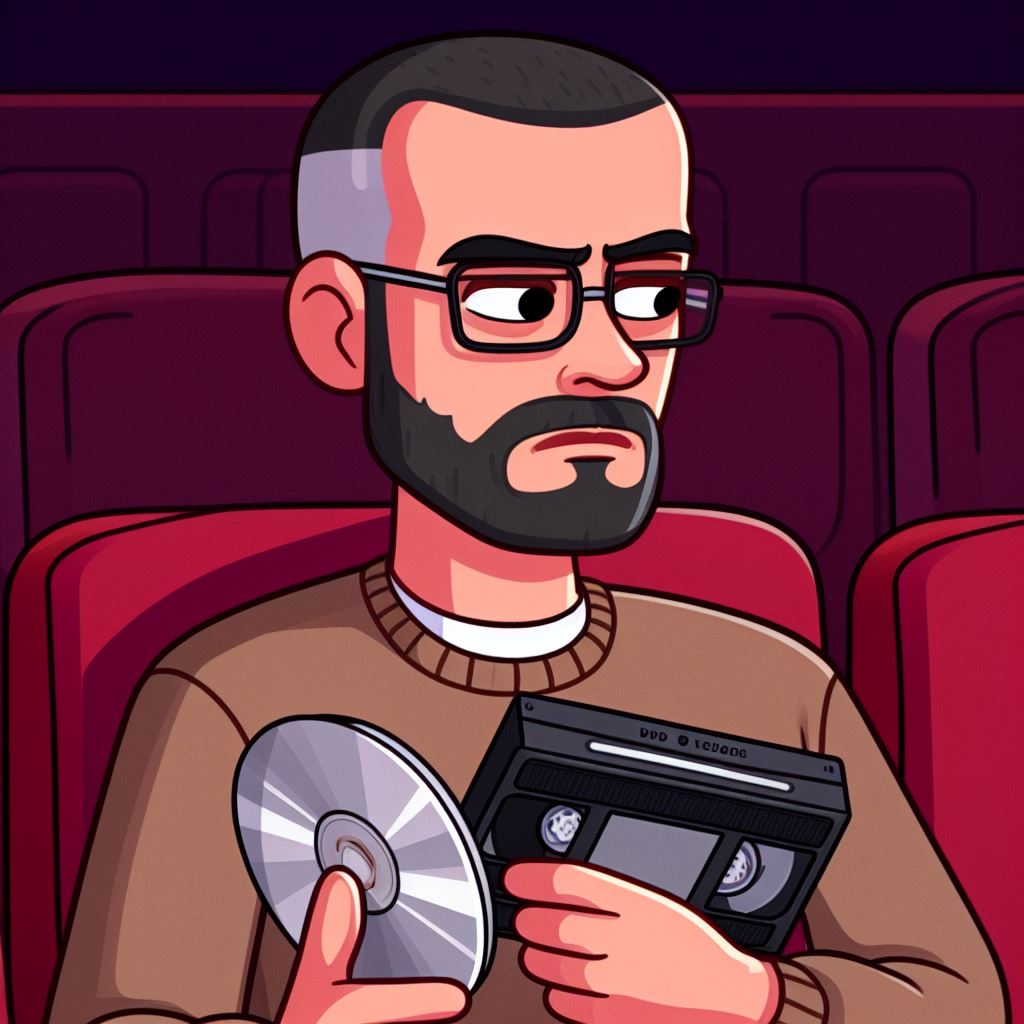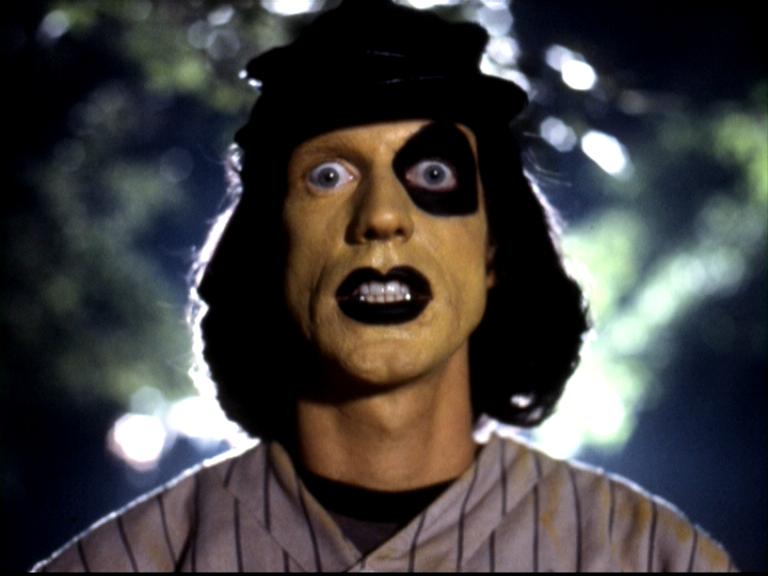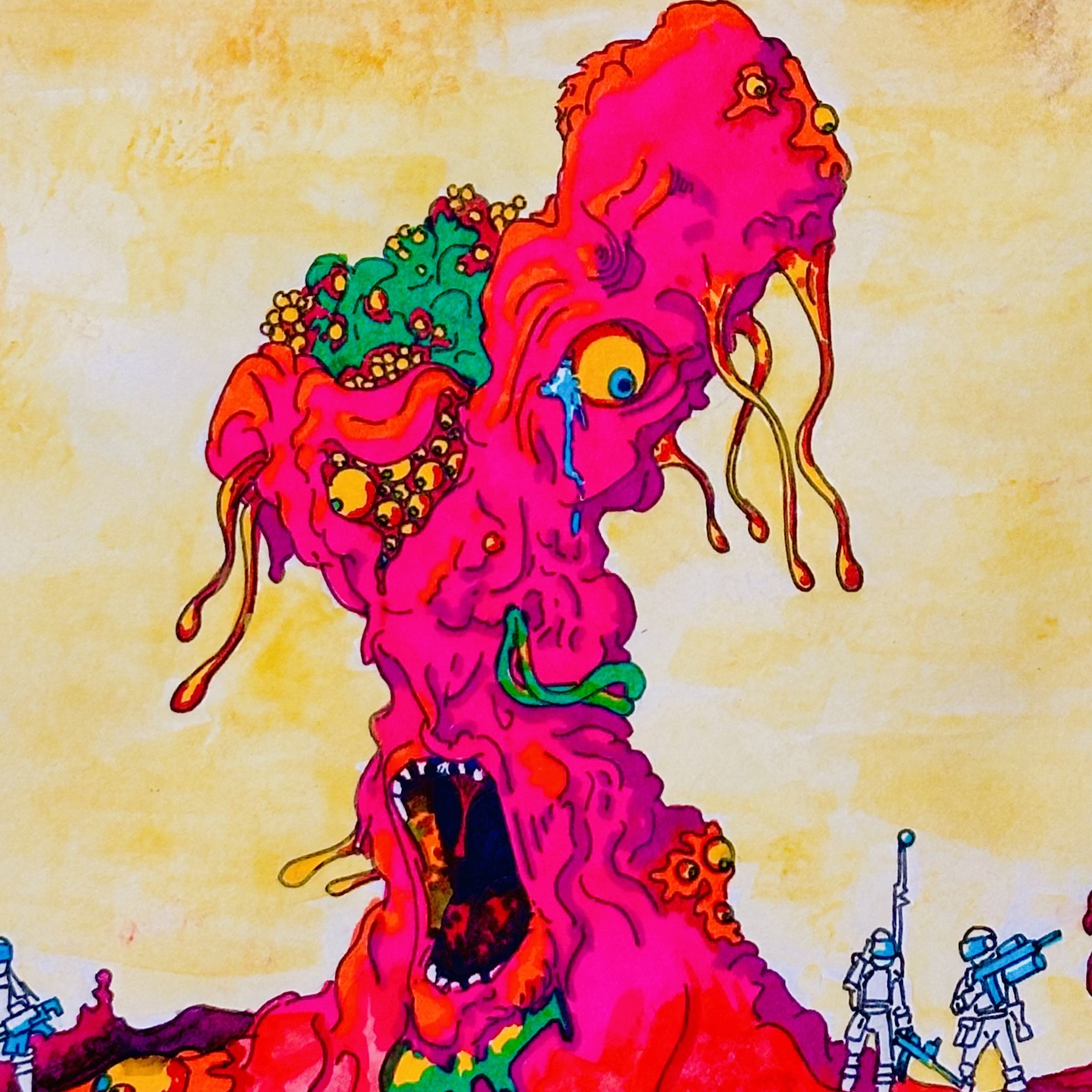vaguely gestures at World War Z
WTF was that movie? Did they buy the rights to the title, but not the content?
Pretty much how that stuff happens.
And the tenth expert bit!
Ruined by Zionist propaganda
Can you imagine a mockumentary with photos, reenactments, Redeker interview, military helicopters recording a supply drop following the redeker plan and thankful survivors, a historian explaining the Pakistan India war, live head cam footage of the Battle of Yonkers as that soldier retells his experince. It ends with some Drill Instructor explaining the box formation and taking your time with shots. Cuts to a drone going up and showing survivors in formation and hundreds of zombies in a large circle around them.
I thought it was an entertaining movie, but I haven’t read the book. Ima go download it right now.
I really liked the audiobook form. The story is basically told through an interviewer asking people what they experienced and the audiobook has different voice actors for all the characters.
The audiobook was good except for the Chinese characters. For some insane reason they decided to have white voice actors do a bad Chinese accent instead of just hiring actual Chinese voice actors.
You’re right some were a miss. but the concept was cool.
I think they would have gotten away with that movie if it wasn’t for the ending. Like yeah they completely destroyed the source material, but at least it’s possible to have an interesting movie. Except like the last freaking third of the movie is just boring. Crushingly boring.
All the adaptations of I Am Legend are bad, but 2007 movie was insulting. It gave the illusion of following the book, but then did a u-tutn and completely changed the meaning of the story and the title itself.
In the movie the protagonist becomes a legend because he sacrifices himself to cure vampirism.
In the book he is the last man in a world of vampires, he kills vampires, and understands that he is like a legendary monster that kills people in their sleep. He is then executed.
In case you haven’t seen the alternate ending for I am Legend, it puts a very different perspective on the whole movie. Apparently it was the original, but didn’t screen well with viewers.
The most telling moment for me is the infected slaps their hand on the glass and draws a butterfly as the last words the protagonist’s daughter ever said to him, “Daddy, look a the butterfly!” echo is his head and he realizes that the infected he has captured has a butterfly tattoo on her shoulder. He even makes a note of it in the capture and experimentation scene claiming that the infected exposing himself to sunlight is a sign that “social de-evolution is complete.” when instead the infected just witnessed a monster kidnap his daughter and drag her into a dangerous area that he cannot follow to do unknown experiments on her to change her into something else.
Instead the ending negates everything built up to the point and ends with a boring action-movie cliche.
It gave the illusion of following the book.
Have you actually read the short story? Because I am baffled as to how anyone who has read the story would say that.
The movie was in no way an adaptation of the short story at all. It never even pretended to follow the short story.
Just like iRobot the only thing I Am Legend has in common with it’s written work is the title.
He is then executed.
No he wasn’t. He committed suicide.
Have you actually read the short story?
Yes I did, probably 10 years before that 2007 movie. Let me recommend you to check an encyclopaedia if you want precision instead of reading a random forum online.
He is then executed.
No he wasn’t. He committed suicide.
For what I remember he was in a jail cell ready to be executed and they offered him a pill. Anyway, that was not the point of the story.
As I recall it, he is locked in a room awaiting execution at the end of the book and while he is there he observes the vampires creating a spectacle out of his death which causes him to realize that he has been the boogeyman of their society - that he has become the stuff of legends.
I, Robot.
Asimov was explicitly trying to get away from the trope of “robots take over humanity”. To be clear, the first short story that became I, Robot was published in 1940. “Robots take over humanity” was already an SF trope by then. Hollywood comes along more than half a century later and dives head first right back into that trope.
Lt Cmdr Data is more what Asimov had it mind. In fact, Data’s character has direct references to Asimov, like his positronic brain.
I, Robot was about as far from the source material as you could get.
That sounds like a challenge to Hollywood. Though I’d put Starship Troopers up there too, haven’t scrolled enough to see it mentioned but I assume it is.
Edit okay I did now and it’s not mentioned. While a fun movie it doesn’t have nearly the same story that the book does. Still I’ll watch it for what it is, but doesn’t have the same tone or scenes the book does.
You’re right, Starship Troopers should be way up on the list, too.
The only thing that advertisement masquerading as a movie has in common with the Asimov work is the title.
Robots take over humanity has been around since literally the first robot story. R.U.R. (Rossum’s Universal Robots) is where the word robot was coined.
Asimov came up with the three laws of robotics.
He then spent the rest of his life writing examples of how they don’t work.
Shouldn’t be called an adaptation, really. They only dressed it up a tiny bit as Asimov for marketing reasons
From what I heard, they got the rights to I, Robot, grabbed some script about a robot uprising that they already had optioned, and slapped a few things on it.
This is apparently fairly common. If there’s a Hollywood movie based on something that doesn’t really align with the original, there’s a good chance that this is what happened. Starship Troopers was the same way (though that’s a whole different ballgame on whether the Hollywood version is good on its own merits).
Seek the truth, always.
They might not qualify as “crimes against mankind”, but they definitely felt like it.
Seek the truth, always.
I’ve been really liking Wheel of Time. I thought the books were really great world building but desperately needed some editing, and the TV provided some good editing. Sue me.
Seek the truth, always.
As someone who didn’t read WoT, the tv series is… on average “okay” with some scenes being great.
Like idk I don’t “hate” it, but certain scenes felt kinda awkward, and I’m always like “wtf is going on”, I also had that with watching GoT, but that was only 40% of the time, with WoT, I feel the “wtf is going on” 75% of the time, not sure if it’s a adaptation thing or just the story thing.
So glad it got cancelled. What Rafe did to the story was abysmal. Great casting, filming, and set work, but the writing was not great. I just hope a great animation shop can get the rights from Tor or whoever one day to do it justice.
That said, the Rhuidean episode was superb.
Seek the truth, always.
Literally everything about World War Z. Absolute travesty. The book is a unique and genuinely thought provoking new take on the zombie genre. The movie is an insult to every bit of world building Max Brooks created.
I say this to people and then always have to clarify:
It’s not that the World War Z movie is a bad adaptation of the book, it’s that it’s NOT an adaptation of the book at all. Other than the name, and the fact that it has zombies, there are literally no similarities between the book and the movie.
The characters are different, the settings are different, the format is different, the plot is different, the way the zombies act is different. Literally EVERYTHING.
Calling it an adaptation is like if you took The Neverending Story and changed its title to The Lord of The Rings and called that an adaptation.
Very well put. I couldn’t agree more.
I thought the movie was pretty enjoyable but it shouldn’t have been named after the book. It would have been a decent zombie movie on its own.
I agree. Its a fun movie but is the literal opposite of everything in the book. My favorite chapter is where the crashed pilot outwalks the group of zombies. There’s something so organic and absolutely terrifying about that. Humans are persistence predators and it was such a unique way of turning the tables on our evolutionary successes. Brilliant stuff. The movie may be fun, but its anything but brilliant.
Please don’t fuck up project hail mary… please don’t fuck up project hail mary…
that book was practically written for tv, I think it will probably go well enough
Shit was written to be a movie like all that guy’s books.
The trailer shows Stratt doing karaoke soo… adjust your expectations accordingly. :)
The Hobbit. Like, all of it
The Hobbit
From the shitty shoehorned romance to wholesale elimination of plot points in the original story. Yeah, there was definitely some drama in the whole production of the film, but nonetheless it was crap.
I like the Bilbo edit that removes most of the crap, and keeps the story shown to be from only what Bilbo sees. Gets the 3 movies down to 4 hrs I think.
I’ve seen that edit. Much improved, but unfortunately there are some continuity gaps that are inevitable when cutting up a film like that.
We demand our Tom Bombadil!
Most of David Lynch’s Dune.
From what I remember, 1984’s Dune is basically the book condensed down into the highlights. If you’ve read the book, fine but otherwise, it must be quite confusing.
cough weirding modules cough
1984 Dune is a very mixed bag despite the pedigree of the folks making it
“Fine” might be overselling it a little bit.
I would say its ‘comprehensible’ if you’ve read the book, but its still not great.
I’d say Denis’ is waaaaaaay worse, they ruined Chani and added some nonsense subplot in part two as well… it’s just prettier. 😤
I loved Arrival though, and I do feel like most disruptive changes in his Dunes were studio notes because it would be more relatable to “modern audiences”.
I think it can still recover, but I felt the same way after leaving the theater for part 2. I was confused why they decided to change it that much. It’s supposed to make her seem intelligent and independent or something, but honestly it just make her seem nieve. They discuss Paul needing to do something like this, and she knows his mother’s position was the same, but was still his father’s only love.
It’s bad enough that they cut out an entire portion of their lives where they have a son together, and lose that son to the Harkonnen. Then they do what they did at the end and it’s just wrong.
It’s definitely the easiest to watch though, and I don’t know that it’s less accurate than 1984’s (Paul calls in rain after he wins the battle?). The miniseries is most accurate though.
Shortenning the timeframe of the first book from a few years to a few months definitely had some weird effects, like Paul and Chani’s relationship not being as solid yet. When I watched Part 2 the first time I kept wondering where they were going to put the timeskip before I realized they just weren’t going to have one.
Still better than whatever garbage Jodorowsky was going to put out. That’s right, I said it.
Dude didn’t even read Dune, and bragged about it. Could have made an awesome sci-fi film, but instead had to co-opt a classic novel
Jodorowsky brags about not knowing how to make movies and still makes them. He does brings about interesting imagery but the intentionally naive cinematographic style gets stale and boring pretty quickly.
EVERY SINGLE CHOICE made in Ready Player One. What a disappointment.
What a disappointment.
That’s my thought on both the book and the movie. Perhaps its not the book’s fault. There was so much hype surrounding it when it came out I thought it must be awesome. Instead I found the same simply story I’d read in a dozen other books, except this one drowning in a sea of 80s and 90s pop culture references. If it was a simply summer read without the hype I likely would have liked it for what it was.
I had similar disappointment when I finally read Dan Brown’s “The Da Vinci Code”. I read that same type of story a dozen times in other much better books but everyone was saying it was a groundbreaking book.
I had heard nothing about it before it came out. I had a friend who was just like “you’ll like this book” so I read it. It was a simple story, but I enjoyed it. The movie, not so much.
The people saying Davinci Code (2003) was groundbreaking never read “Holy Blood, Holy Grail” from 1982:
https://en.m.wikipedia.org/wiki/The_Holy_Blood_and_the_Holy_Grail
Or the Preacher comics from 1995-2000:
I actually liked it. The book was good too. I wasn’t completely disaffected. Agree to disagree.
The most egregious that i remember must be Artemis Fowl.
I remember liking the book quite a lot for making fairies into the opposite of pushovers. It also had a mean edge to it that other teen fantasy lacked.
The movie is just… Not that.
I hated the fact that the movie steered away from the fact that Artemis Fowl was a frigging criminal mastermind and instead made him a mid rebel with a relatable motivation… Have the same grouse about Ender’s Game too
I watched the movie first. The only good thing about it is it inspired me to read the book to see what the movie missed. Upon reading all the books, I think the vest way to adapt them to screen would be an animated series that is beat for beat faithful to the books.
My biggest issue with the film is, if they didn’t want a villain protagonist, why adapt a book with a villain protagonist?
Just pick a scene from The Hobbit movies and there’s your answer. Any scene.
You don’t remember in the book when Gandalf did a kick-flip 720 to a backside rail slide down the goblin king’s decapitated body?
Can I flip the script? Black Hawk Down was the most faithful adaptation of a book I’ve ever seen. As to the book, the author wanted to tell the story of the Battle of Mogadishu, faithfully. He had unprecedented, at the time, access to Defense Department files, interviewed everyone involved, strived for perfect accuracy.
When those guys are on that street corner, that’s what happened.
This is going to sound super nitpicky but even the first time I saw it, the modern body, ahistorical Aimpoints seen throughout the entire movie bothered me. It’s only because they are so unavoidably prominent and because the rest of the movie’s props are so well done that they stick out.
Aimpoints?
The red dots used on almost all of the Delta Force guns.


That style of red dot didn’t exist until a few years later. At the time it should have been the equally distinct looking “long tube” Aimpoints.
Again, I know it is super nitpicky, but they are so prominent and visible especially with those red lenses throughout the movie. They are only a few years wrong, but it’s like if a WW1 movie was full of Thompson submachineguns.
The BDH movie otherwise does a lot of great prop and costume details. Not flawless, but the other inaccuracies are much less noticeable.
Not a movie, but a show. “Foundation”.
Look, I get it, if you want to tell your own sci fi story that has nothing to do with Asimov, great! Good for you!
But don’t pretend it’s Foundation.
Eh. I’ve been watching it, and I think it’s a decent adaptation. Entirely faithful to the original? No. But the core trilogy of was written in the 1950s, and it’s absolutely a product of its time. I for one am glad they left the misogyny back in the 1950s where it belongs. Also, the original books were very much in the “our friend the atom” era of nuclear power, the era where they were predicting power too cheap to meter and no one had ever heard of a nuclear plant meltdown. The inclusion of the genetic dynasty was an inspired choice. And frankly, I’m glad we’re not depicting a far future where everybody is white.
But I think the TV series is faithful to the core themes of the books. It still explores the contrast between the “trends and forces” and “great man” theories of history. It still explores the fascinating concept of predicting the future mathematically. It still shows the slow and inexorable decline of a great galactic empire. And the Mule in the show is every bit a force of malevolent evil as the Mule in the novels.
Overall, is it a perfect one-to-one adaption? No, but that was never going to happen for a book like Foundation. It was long considered unfilmable. But some minor adaptations have allowed them to create a good series that explores the core themes of Asimov’s work.
The core concept of the books was, that Hari could predict the future of societies in really broad strokes. Essentially how masses behave in certain situations. In order to actually make the gamble, he forced a situation where he put a group of people that could only behave in a certain way because they were lacking resources.
But, in all of the books it’s quite clear that Hari couldn’t make predictions for single people within a group, because there’re too many variables (Asimov even created an example where Hari deliberately predicted the choices of a single person that exists in the present, and why that doesn’t work for other purposes).
In the books, Hari cannot make any decisions for other people, because the solution can only come from those people (though because he setup the foundation colony like he did, the outcome was always predestined).
In the show, they don’t care about the core concept. In the first season they show how psycho history is supposed to work, and partially adhere to it, but soon ignore all the limitations that it should have. It’s like Hari plays those 1000 years on a musical instrument, manipulating people and situations. He tell’s people the solution to the problem. He (because he’s an AI) constantly interferes. That’s not the idea of the core story.
Imagine it like this, in the books, a “creator” setup the world in a way where people can still make individual decisions, but only in a way that leads to a predestined outcome. Personal choices may lead to a different way to the outcome (see the mule), but in the end, it’ll always come to the intended solution.
The show just has an omnipotent god that is reborn and moves people like chess pieces, constantly adapting to changing situations.
The fact that gods and magic also seemingly exist really fucks me up because its explicit in Tue original book that god is just a tool for smarter people (Foundation) to manipulate dumber people (everyone else).
Obnoxious atheist take? Sure I guess.
But it feels as if someone rebooted harry potter and made the kids saying something nice about trans people or Jews.
The religion of technology was something that I especially enjoyed in the books. There were many highlights that Goyer chose to ignore.
Couldn’t agree more, it’s not exactly a faithful adaptation, but I feel they did a damn good job conveying the overall message and story.
It’s three shows intertwined into one, and it feels as if three teams wrote them independently. They are completely different, the only thing in common is reusing Asomov’s Foundation names. It totally sucks.
The coolest part of the show is the genetic dynasty stuff that wasn’t even in the series
Legitimately, if they had just done a “A Foundation Story: Empire” and then just did the genetic dynasty stuff, I don’t think any of us would be mad.
But I don’t think general audiences have read much Foundation these days so they would have struggled to set it in that universe without an established Foundation Cinematic Universe.
Anyways, I’m super excited for Tue Foundation super cut that’s just Empire.
My thoughts exactly before I gave up on it. It felt like all the good writers on the team had shuffled over to write the dynasty stuff, and the difference in quality when the show bounced between the dynasty and foundation stories was something of a whiplash.
Personally, I’m still irritated at the end of Hannibal (the 2001 movie). Spoilers for the end of the film and book ahead:
In the book, Clarice Starling has gone as far as she can in her FBI career. She became famous for solving big cases, moved up the corporate ladder, but that glass ceiling kept her from advancing. Too many misogynistic “good ol’ boys” at the top, who not only prevent her from excelling in her career, but take every tiny mistake and blow it up into a potentially career-ending scenario.
Enter Hannibal Lecter; the suave and highly intelligent cannibal serial killer. He’s outraged that Clarice’s coworkers and bosses are actively objectifying her and ruining her career.
Long story short, at the end of the book, Hannibal rescues Clarice and gives her misogynistic boss an impromptu (and tasty!) lobotomy. Clarice ends up running away with Hannibal, because she realized he’s the only person who respects her as an intelligent human being and not a piece of ass.
The movie chose to keep her loyal to the FBI and combative against Hannibal, even though the FBI actively tried to destroy her life. Hannibal escapes alone and the film just kind of ends. It was a complete non-ending.
The whole point of Silence of the Lambs and its sequel, Hannibal, was that Clarice was a woman trying to survive in a “man’s job,” yet proved she could belong - and excel - through her own skill and intellect. Silence of the Lambs did a pretty good job showing that on the big screen, but Hannibal didn’t get the point of the story and decided the hero shouldn’t end up with a cannibal, period. They treated him as more of an irredeemable monster.
It’s kind of the “man vs. bear” meme, except replace the bear with a cannibal serial killer, and the girl still chose the cannibal as the safer choice to her co-workers.


